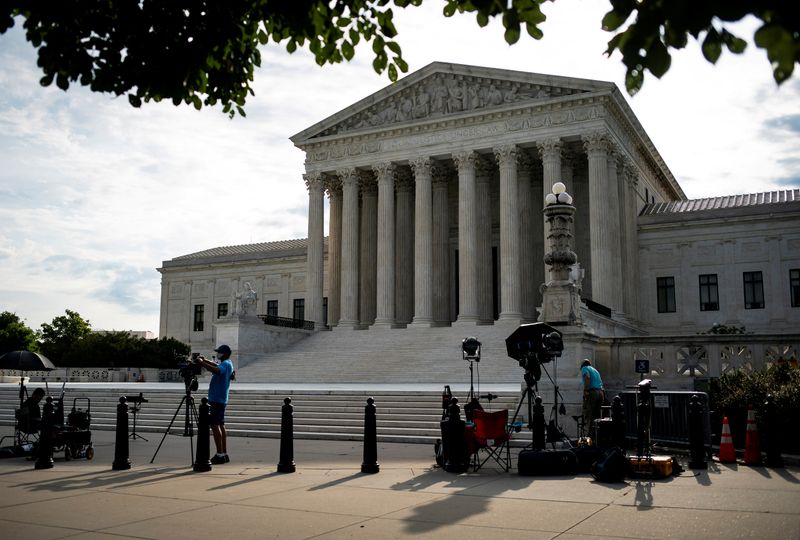By Andrew Chung
(Reuters) - Conservative U.S. Supreme Court justices on Wednesday appeared ready to further expand public funding of religiously based entities, indicating sympathy toward a challenge by two Christian families to a Maine tuition assistance program that excludes private schools that promote religious beliefs.
The court heard nearly two hours of arguments in an appeal by the families of a lower court ruling rejecting their claim that Maine's program singles them out for religious discrimination in violation of the U.S. Constitution including its First Amendment protection of the free exercise of religion.
The families sought taxpayer dollars to send their children to two Christian schools that integrate religion into their classrooms and have policies against gay and transgender students and staff. The First Amendment also prohibits government endorsement of any particular religion.
Expanding religious rights has been a priority in recent years for the Supreme Court, which has a 6-3 conservative majority. The court's ruling last year in a Montana case paved the way for more taxpayer dollars to flow to religious schools.
Conservative justices asked questions aimed at exposing potential bias in Maine's program, indicating concern that religious schools and parents are being treated differently than their secular counterparts.
The lesson from the court's prior rulings in this area, Justice Brett Kavanaugh said, is that "discriminating against all religions versus secular is itself a kind of discrimination that the court has said is odious to the Constitution, at least in certain contexts."
Maine's program applies only in sparsely populated areas lacking public secondary schools. Public funds may be used to pay for tuition at "nonsectarian" private schools that do not promote a particular religion or present material "through the lens of that faith."
Chief Justice John Roberts worried that Maine's eligibility decisions could favor one religion over another.
"You're discriminating among religions based on their belief, right?" Roberts asked a lawyer for Maine.
The ruling in the case, due by the end of June, could further erode the separation of church and state in the United States. Maine is backed in the case by President Joe Biden's administration, public school boards and teacher unions.
Liberal justices emphasized that Maine's program is meant only to ensure availability of public education. They expressed concern that funding the promotion of religion could cause strife in society.
Justice Sonia Sotomayor wondered why rural parents should get money for religious schools when parents in more populated areas would not have that option.
Justice Elena Kagan said states can legally make choices around religion that best fit their communities.
The two schools involved in the case, Kagan said, are "proudly discriminatory. Other people won't understand why in the world their taxpayer dollars are going to discriminatory schools. For any of a number of reasons, a state can say, 'We don't want to play in this game.'"
Two sets of parents - David and Amy Carson, and Troy and Angela Nelson - sued Maine in 2018.
The Nelsons would like to use the tuition aid to send their son to a Christian school called Temple Academy in Waterville, but instead use it to send him to a secular private high school. The Carsons paid out-of-pocket to send their daughter to Bangor Christian Schools.
The two schools describe themselves as seeking to instill a "Biblical worldview" in students, according to court records. They will not admit gay or transgender students or hire gay teachers. Bangor Christian Schools teaches that a "husband is the leader of the household" and includes a class instructing students to "refute the teachings of the Islamic religion with the truth of God's Word."
Last year's Montana ruling prevented states from disqualifying schools from public aid based on their religious status or affiliation. The Maine case goes further, with the possibility looming of requiring states that subsidize private education to also fund religious activities.
